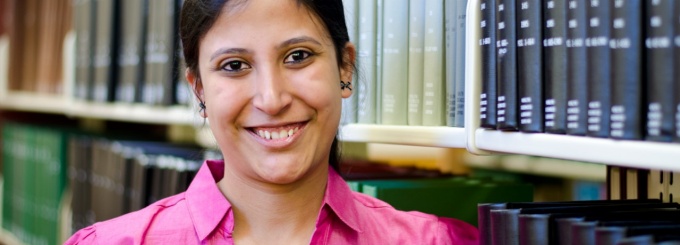Community-based Rehabilitation in India

Sutanuka Bhattacharjya writes about her experience working with community-based rehabilitation workers in India to identify their training needs and potential areas in which technology can help the teaching process.
Sutanuka Bhattacharjya is a postdoctoral researcher in UB's Rehabilitation Science department, where she earned her PhD in 2017. She conducted the fieldwork below as part of her doctoral program.
Community-based rehabilitation (CBR) is an initiative started by the World Health Organization (WHO) in 1978, which works towards rehabilitation for individuals with disabilities in low to middle income countries with the help of local resources.
CBR workers frequently have limited educational experience with a strong desire to help. There is no formal training of CBR workers and the task of preparing CBR workers falls on the government and non-government organizations. Furthermore, once in the field, CBR workers have limited access to educational materials to help families learn how to best care for their children with disabilities.
With help and support from Dr. Arthur Goshin’s Healthy World Foundation and the Office of Global Health Initiatives in the UB School of Public Health and Health Professions, the UB occupational therapy program has established a relationship with the Indian Institute of Cerebral Palsy (IICP), a not-for profit organization in West Bengal in India.
With Dr. Goshin’s support and guidance from my faculty advisor, Dr. Janice Tona, I visited Eastern India for two weeks in August 2013, with the hope of better understanding and identifying training needs of the CBR workers, and identifying potential areas in which technology can help CBR workers teach parents through the use of hand-held mobile devices. I needed to learn the training policies and culture of the community. Being an international student from India, I had assumed that I was well prepared for this visit; however, I had much to learn.
My project was to interview CBR workers, individuals with disabilities and their parents regarding their experiences in managing daily activities of living such as feeding, dressing and toileting. While doing so, I was always accompanied by a very helpful CBR team member from the IICP as we interacted with several CBR workers at their places of work, which quite often were school buildings. We also completed several house visits to meet parents and children with disabilities. We received warm welcomes accompanied with tea, sweets, cold drinks or snacks. It was refreshing to see their hope and constant encouragement to find new and innovative ways to help these children. In spite of being from India, it was an amazingly new experience for me to interact with people from the rural villages and to understand their views on disability and life.
I learned a great deal about how intervention plans could change with the change in context and culture. During my visit, I had to constantly remind myself to be the observer, not to influence the interviewee’s concept and thoughts by my preconceived notions. Thoughts, concepts and life views changed with each village; however, the values and hope were consistent. I look forward to the next visit to add to my experience of global health.